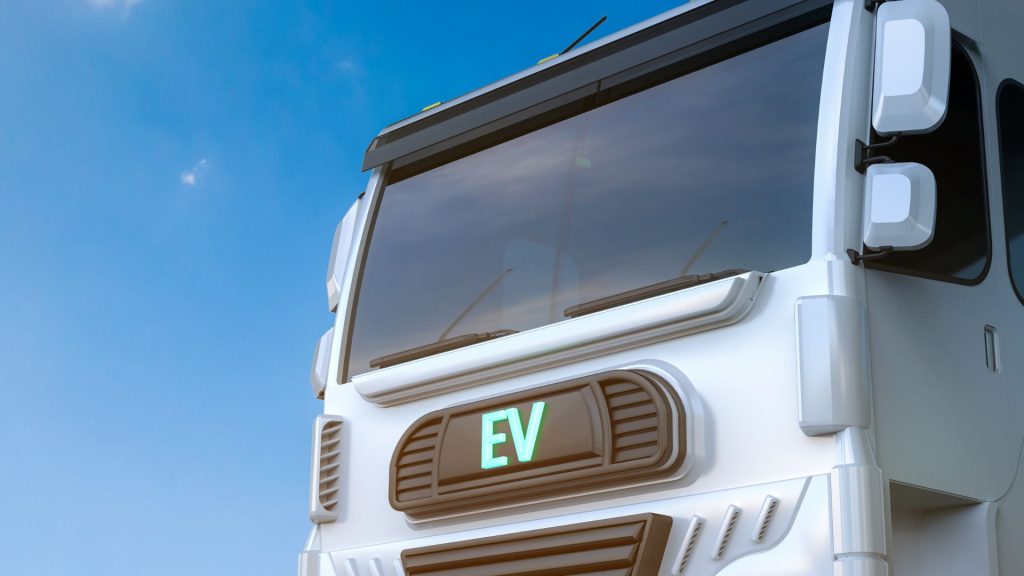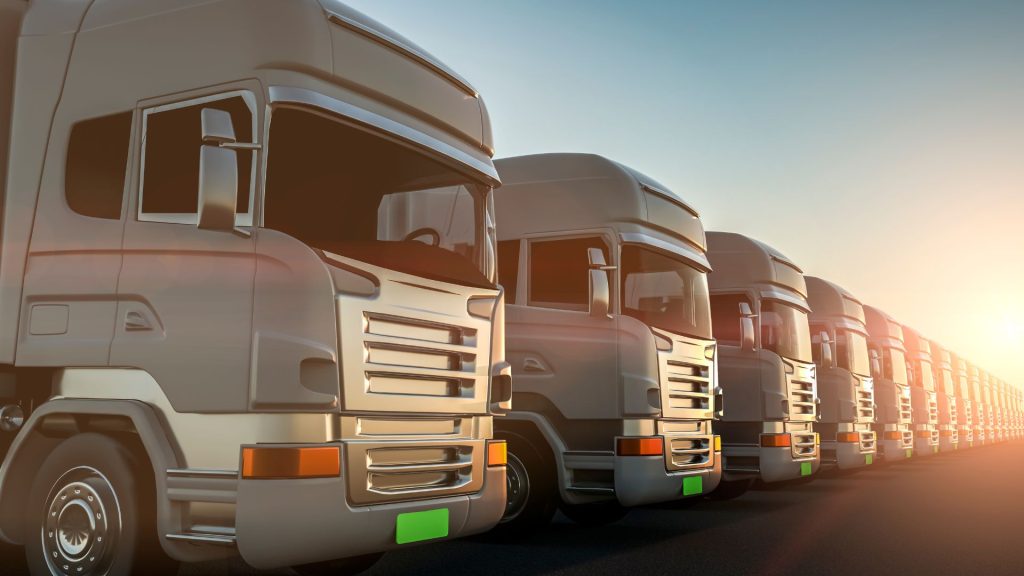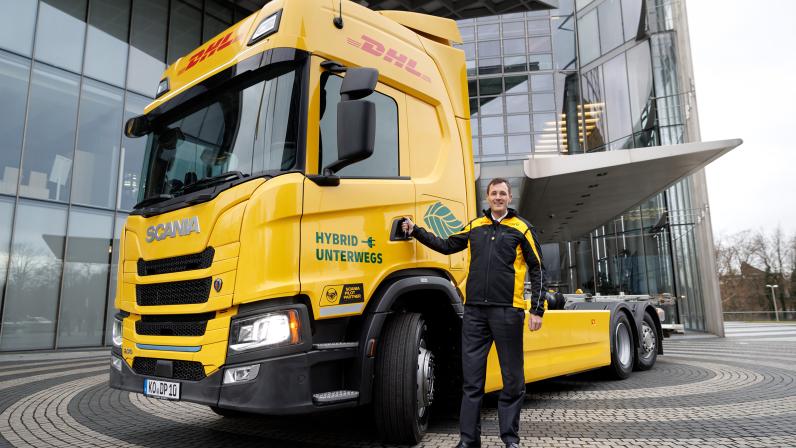DHL Group is taking a major step toward sustainable logistics by testing a new hybrid electric truck that is named as Extended Range Electric Vehicle (EREV) in partnership with heavy vehicle manufacturer Scania. This innovative truck combines the benefits of electric power with a fuel-powered generator, addressing a key challenge in electric vehicle (EV) adoption—the lack of widespread charging infrastructure for long-haul transport.

DHL’s Extended Range Electric Truck: A Game-Changer
The new EREV, currently being tested on transport routes between Berlin and Hamburg, allows DHL’s Post & Parcel Germany division to operate more efficiently while cutting carbon emissions. While fully electric trucks are the ultimate goal for sustainable freight transport, existing challenges—such as limited charging points, high electricity costs during peak seasons, and strain on the power grid—make full adoption difficult in the short term.
By integrating a fuel-powered generator in place of one of the truck’s battery packs, DHL and Scania have developed a pragmatic solution that enables the vehicle to run 80% to 90% on renewable electricity. This setup ensures a significant reduction in CO2 emissions—over 80% compared to traditional diesel trucks—while maintaining flexibility for long-distance routes.
How the EREV Truck Works
Unlike fully electric trucks, which rely solely on battery power, DHL’s EREV model includes a built-in generator that provides additional energy when needed. While this reduces the range available from the battery alone, it extends the overall driving range to between 400 and 500 miles. In contrast, Scania’s fully electric truck offers a range of approximately 350 miles under similar freight conditions.
The generator uses conventional fuel, allowing the truck to refuel at any standard petrol station when necessary. This eliminates the dependency on a fully developed EV charging network, making it an ideal transition solution for freight companies looking to reduce their environmental impact while maintaining operational efficiency.
DHL and Scania’s Vision for Sustainable Logistics
DHL Group CEO Tobias Meyer emphasized the importance of taking immediate action rather than waiting for perfect conditions to adopt fully electric trucks.
“It is going to take some time before renewable electricity, the grid, and charging infrastructure are available and robust enough to rely fully on battery-electric trucks, especially for a large-scale system like the German parcel network of DHL,” Meyer stated. “Instead of waiting, DHL and Scania are collaborating on a practical solution that can significantly reduce CO2 emissions and make logistics more sustainable today.”
Scania CEO Christian Levin echoed this sentiment, stressing the importance of scalable solutions.
“The future is electric, but perfect must not be the enemy of good as we are getting there. This vehicle is an example of interim solutions that can accelerate the decarbonization of heavy transport before the system becomes fully electrified.”

The Road to Fully Electric Freight Transport
While 100% electrification of freight transport remains the ultimate goal, interim solutions like DHL’s EREV truck offer a viable way to reduce carbon emissions today. Policymakers and industry leaders must continue to support innovations like these while investing in infrastructure to make full electrification a reality.
As logistics companies worldwide seek sustainable transport solutions, hybrid electric trucks with extended range capabilities could play a crucial role in reducing emissions without compromising efficiency.
Final Thoughts
DHL’s latest electric truck innovation with Scania is a step toward a greener future in logistics. By combining electric power with a fuel-powered generator, this hybrid truck offers a practical and immediate solution to long-distance freight transport challenges. As governments and industries work toward a fully electric future, solutions like this will be essential in driving sustainability forward.
Stay updated with the latest supply chain and logistics innovations by following our blog. Have thoughts on the future of electric trucking? Share them in the comments below!
